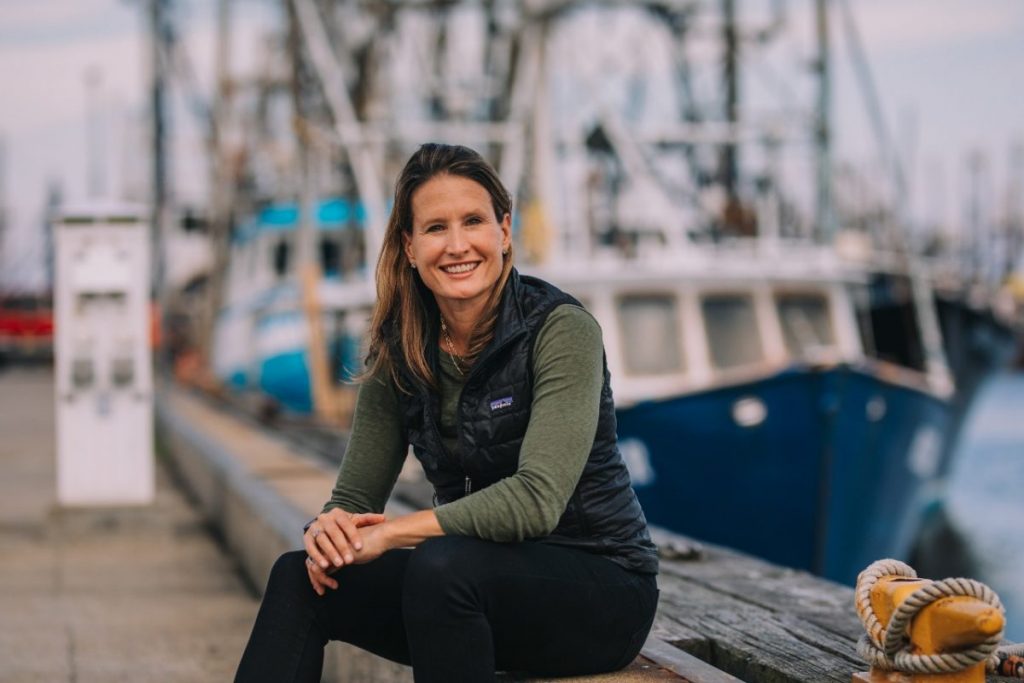
It’s a tough time for any business to stay afloat — even one that’s 100 years old.
Foley Fish Company of New Bedford, Massachusetts, founded in 1921, has passed through four generations of Foleys — at present, it is co-owned by Laura Foley and her husband, Peter Ramsden.
She’s the first woman to sit at the helm of the seafood business, which buys its fish from nearby docks each morning, then processes and packages it before shipping it out to customers. Today, the company caters to hundreds of clients scattered across 38 states.
Naturally, such a long-lasting business has weathered serious storms before — from the Great Depression and World War II, to familial in-fighting and competitive threats. Her father even detailed the highs and lows in a book he wrote about the family firm. But the coronavirus crisis has been a beast all its own, and staying open required fast thinking and a strategy shift, Foley says.
Previously, the company sold its fish to stores, restaurants, hotels and other businesses. To make up some lost revenue with so many clients temporarily shut down, “we pivoted to doing a direct-to-consumer program through these protein packs,” or small batches of fresh fish that are delivered directly to people’s homes.
Though sales have not yet returned to what they once were, Foley says the idea has kept Foley Fish Company going.
[Related: 5 Pandemic Pivots That Show the Resilience of Women Entrepreneurs]
Just Keep Swimming
Foley, who first joined the company at age 14 to pack fish (she remembers the summer job as “hard, and cold, and wet”), took control of the family company in 2001. As a young adult, she had pursued a career in public relations before returning to Foley Fish to work in sales. Her time as boss has come with its own challenges, in particular adapting the decades-old company’s procedures to rapidly changing technology.
The spread of Covid-19 — and the resulting restaurant closures, hotel reservation cancellations and overall widespread financial strains — has been something else entirely. “We lost 90 percent of our business overnight,” Foley says, adding that sales are still down between 60 and 70 percent to this day.
It wasn’t just revenue that was lost. (Foley declined to disclose exact figures.) The company went from having two facilities — one in New Bedford, and one in Boston — to only having one. And while they tried to keep as many employees as they could, even subsidizing travel for those who had worked out of the now-closed Boston location, Foley was forced to furlough workers, going from 90 employees to 54.
To keep money coming in, Foley developed the “protein pack” program to bring fresh fish to paying individual customers. She even makes some of the deliveries herself, driving around the state of Rhode Island, where she lives, with a van full of protein packs.
Since she had made the modernization of the company a priority from the start — by purchasing employee laptops, updating the website, creating an email ordering system, building a social media presence and digitizing other company procedures — she had the tools in place to quickly and effectively market her new product, and to accept and process the influx of orders for it.
People took to it quickly, she says. In fact, it’s been so successful that she plans to keep it as part of the company’s business model after the pandemic ends — though she would want to expand and further automate it when that time comes. “There’s a market for it, and I never would’ve realized this revenue stream in a million years” if not for the pandemic.
[Related: How 1 Woman Shipping Entrepreneur Pivoted Mid-Pandemic to Stay Open]
Looking Ahead
As weather gets warmer — which means expanded outdoor dining options — and the vaccine rollout continues, she anticipates more of their previous vendors coming back into the fold, too.
After all, they have in the past. “We do have customers who have been with us for multiple generations,” who have come back each time they had to step away, she says. And given the legacy nature of many of the companies they work with, they often have the resources and foundation in place to weather storms such as this.
“I do feel really good about customers coming back. It’s just a matter of hanging on, and seeing those incremental changes week after week,” she says.
Foley also grounds herself in remembering that this is far from the first squall Foley Fish Company has weathered. “We’ve rebuilt before — now it’s our turn,” she says, pointing to the myriad ways in which the company’s strength has been tested in the past. “You do what you need to do during this time.”
But, she admits, “it has been a real roller coaster.”
[Related: Here’s a Look at the Post-Pandemic Business Picture]

